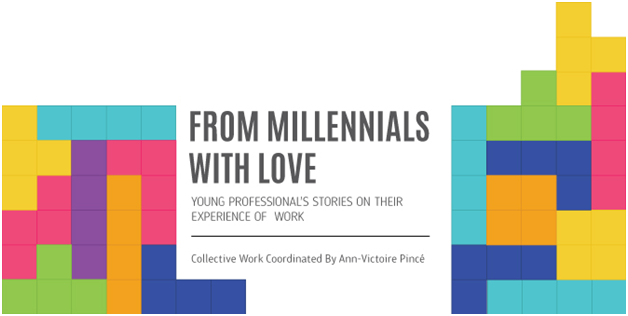Dr Bankole Falade examines how research on the oral polio vaccine controversy in Nigeria helps us to understand prevailing attitudes to the Ebola epidemic in West Africa.
 The Ebola Virus Disease (EVD) represents the greatest challenge to global health in recent times dwarfing the oral polio vaccine controversy in northern Nigeria which spread poliomyelitis to many neighbouring countries. EVD has caused panic worldwide due primarily to its mortality rate which reached 90% in past epidemics, its horrifying symptoms and the lack of a cure. That it has spread to the United States and Spain despite the sophistication of their health care systems has further heightened fears with calls for the overhaul of existing infectious disease controls and the introduction of new practices at border posts. Such demands by the public however indicate a poor understanding of a virus which has an incubation period of about 21 days but also shows a desire to protect self and loved ones. Calls have also been made for a ban on all flights from the affected countries.
The Ebola Virus Disease (EVD) represents the greatest challenge to global health in recent times dwarfing the oral polio vaccine controversy in northern Nigeria which spread poliomyelitis to many neighbouring countries. EVD has caused panic worldwide due primarily to its mortality rate which reached 90% in past epidemics, its horrifying symptoms and the lack of a cure. That it has spread to the United States and Spain despite the sophistication of their health care systems has further heightened fears with calls for the overhaul of existing infectious disease controls and the introduction of new practices at border posts. Such demands by the public however indicate a poor understanding of a virus which has an incubation period of about 21 days but also shows a desire to protect self and loved ones. Calls have also been made for a ban on all flights from the affected countries.
Now, over 8000 cases have been reported in West Africa with a death toll surpassing 4000 in Guinea, Liberia and Sierra Leone. The mortality rate may however, be worse than reported due to the similarity of symptoms with other less deadly diseases such as malaria and typhoid fever which are also fatal if untreated, and the unavailability of diagnostic facilities in many remote areas of Liberia and Sierra Leone, both of whom are yet to recover from the scars of bloody civil wars. And sadly too, over 200 health care workers have died making it a very high risk job and forcing many doctors and nurses to stay away from hospitals for fear of contracting the disease. So far, public education has failed to control the spread and mortality rates among both health care workers and the public.
The mode of transmission (contact) and the lack of a cure dictate that isolation of contacts remains the only viable option for controlling its spread. But while this has been successful in Nigeria, the method met with stiff resistance in other West African countries, particularly, Liberia necessitating the drafting of the military to control movement of the public in restricted areas. “No Ebola in West Point” was the jingle as an irate crowd broke into a quarantine centre in Liberia, looted beddings already stained with the virus and forcibly removed patients from the clinics. Conspiracy theories have also sprung up in mainstream media and internet chat rooms with references to EVD’s origin as part of the business model of western pharmaceutical companies or as a probable biological weapon being tested on Africans. There are also allegations of racism against “unworthy Africans” by the West as a plausible reason for the lack of a vaccine and the spread has likewise been described as part of a new world order to reduce the population of the world. The contribution of Delaware State University professor, Cyril Broderick, published in a Liberian newspaper that the US department of Defence is funding Ebola trials on humans in Africa shows that spreading conspiracy theories is not confined to the layperson, but is also propagated, and given value by scientists themselves. This was the also the case during the controversy over the oral polio vaccine in Nigeria when scientists lined up on both sides on the safety or sterilising properties of the vaccine.
The above graph from my study of the OPV controversy shows, like the ongoing Ebola crisis, that there are three epidemics running in parallel. There are a crisis of meaning fuelled by conspiracy theories and religious beliefs as shown by media frames, intensity of news coverage which is an indication of public anxiety, and risk communication indicated by the publication of rising infection rates. For us in the Department of Social Psychology at the LSE, all three epidemics interact and constrain each other. Focusing on the risk side is thus not enough particularly in African countries where fate or the will of God takes prevalence over risk perception. We need to go beyond science to look at the representations which drive resistance in the context of science in society and how conspiracy theories act as the driving force for social movements and motivate collective resistance.
The oral polio vaccine controversy study shows that when frames of meaning increase, so do resistance and public anxiety as indicated by an increasing flurry of media activities. And when frames reduce, so do disease incidence. The spread of conspiracy theories contributes to resistance and spread of disease at the early stages of an outbreak but its influence reduces in later stages as causalities increase and the public becomes more focused on risk information. The conspiracy theories however do not die out completely and some of these allegations have been with us probably since the Tuskegee syphilis experiment. They re-emerged during the controversy over the origin of the AIDS virus and with every new global health crisis.
In the context of an increasingly connected world, the prevailing blame “the other” approach is inadequate to prevent the epidemic spreading to doorsteps around the world. The emerging global spread of EVD highlights the need for high value research for modelling its patterns; understanding why containment practices worked in Nigeria and not other countries and suggestions for nipping in the bud, future potential risks to global health. This is the task we have set for ourselves in LSE’s Department of Social Psychology over the next few years for which we are seeking funding from local and international agencies.
This article first appeared on the Africa at LSE blog.






